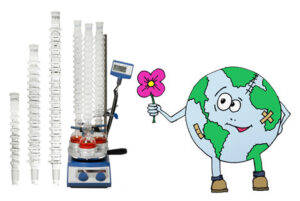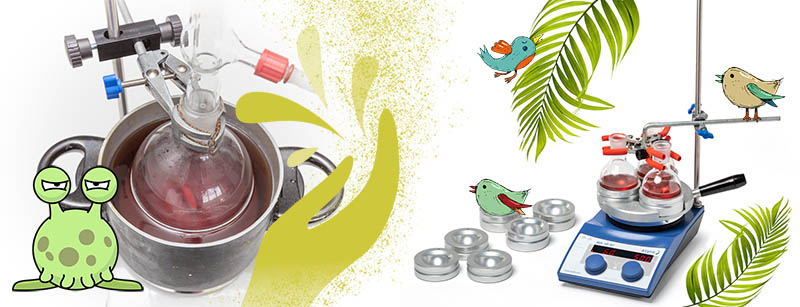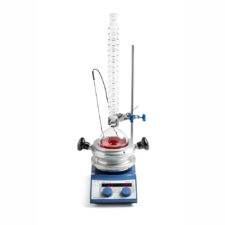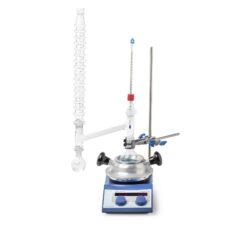World Environment Day 2022 is almost upon us, with this annual event taking place on 5th June. This global platform is led by the United Nations Environment Programme (UNEP) and since its first year in 1974, it’s grown to become the largest platform of its type for environmental outreach with millions of people from all around the world getting involved to protect our planet.
What does World Environment Day 2022 mean to Asynt?
In a way, every day is World Environment Day for us as we believe that sustainable solutions for the laboratory have an immense impact on our planet and that’s a huge factor in our product development strategies. With millions of scientists around the world making smart choices in terms of the equipment they choose and updating how they work to embrace new knowledge and technology though, everyone is playing their part and we’re doing all we can to help.
We have to be realistic though.
Facing the truth about our own environmental impact on the world
Would you use a tool that was great for the environment if it actually, personally, made your job a lot harder? Would you use a system that didn’t enable you to get reliable and consistent results but had a smaller environmental impact than how you used to work? Would your employer install a system that put a fiscal strain on the company just because it’s “green”?
Unlikely.
The reality is that the solutions that we provide are designed to work brilliantly, be cost effective, and actually have a positive impact on your work, the environment, and the financial security of your company. Martyn Fordham joined Gambica (UK trade association for companies in the lab, automation, and testing industries) at the recent CHEMUK exhibition to share his knowledge and experience on this topic and was well met as he explained how saving money and increasing efficiencies are often the results of sustainable technologies for synthesis laboratories.
View this post on Instagram
A solution that works for everyone
Let me give you an example here – if you have a lab with only 5 water condensers running for just 5 hours a day, that’s around £186.00* per month or £2,232.00 per year quite literally going straight down the drain. You’re paying for that drainage too, don’t forget! Make that a 24 hour reaction and the cost jumps to £893.00 per month or £10,716.00 per year. Surely you could put those funds to better use?
By swapping those water condensers out for an air condenser which will pay for itself in a ridiculously short space of time you’re saving a huge pile of cash in addition to a whole load of other benefits; fabulous performance, reliable results, super-quick and easy to set up, no daisy-chaining tubing all over the place causing a hazard (as well as being a pain to set up and take down), no connections popping off in the middle of the night due to fluctuations in water pressure leaving you arriving at a new indoor swimming pool the following morning, and they’re hugely robust and easy to clean/store. The planet will thank you and so will your budget manager! What’s not to love?
You want more?
How about another example? Are you still using an oil bath to heat your reactions? If so, maybe it’s time to consider an alternative. Our range of DrySyn oil-free heating (and cooling) blocks actually use 35% LESS energy, with an even and reliable heat transfer to your reaction. You can stop dealing with the mess of the oil, worrying about disposal and replacement of it, and as a bonus – stop suffering contamination of your work from splashes. You also lose a huge fire hazard in the lab. However you look at it, that’s a win for the planet and for you.
Time to make a change
These are the kind of solutions that World Environment Day 2022 needs and environmentally conscious chemists want. If you’re interested in discussing the impact that these – or any of our other sustainable solutions – would have on how you work then please reach out and talk to us today.
Info: CondenSyn overview (PDF flyer) | DrySyn Brochure (PDF)
*Based on commercial rate cost from a water supplier here in the UK, Anglian Water (Wave), in March 2022 and is based on 2L water used per minute with a water condenser.
https://www.worldenvironmentday.global/









